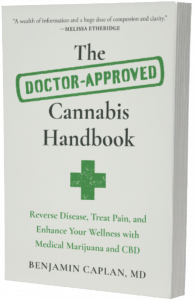In a recent landmark announcement on Cannabis Rescheduling, President Biden expressed his administration’s commitment to support the rescheduling of cannabis from Schedule 1 to Schedule 3 of the Controlled Substances Act. This shift could potentially alter the landscape of cannabis regulation in the United States, impacting everything from medical research to business operations.
Schedule 1 Substances:
This category includes drugs that are deemed to have “no currently accepted medical use and a high potential for abuse:”
1. Heroin
2. Lysergic acid diethylamide (LSD)
3. 3,4-methylenedioxymethamphetamine (Ecstasy)
4. Methaqualone
5. Peyote
6. Gamma-hydroxybutyric acid (GHB)
7. Bath Salts
Schedule 3 Substances:
These are drugs with a “moderate to low potential for physical and psychological dependence:”
1. Buprenorphine
2. Codeine and acetaminophen combinations
3. Ketamine
4. Anabolic steroids
5. Testosterone
6. Dronabinol
7. Benzphetamine
The goal of this blog is to explore the implications of this potential rescheduling. I’m going to pull apart how such a change could affect different aspects of society, including medical practices, business landscapes, legal frameworks, and public perception. I’m going to sift through both the benefits and concerns, and share an overview of what rescheduling cannabis might mean for different sectors and the broader cultural context.
The coming earthquake at the intersection of healthcare and policy
I find the topic of cannabis rescheduling particularly fascinating. The momentous shifting of cannabis from Schedule 1 to Schedule 3 in the controlled substances list is not just a simple regulatory change; it’s an epic societal shift with broad implications across our entire culture. Economics, Law, Medicine, Social Life, Parenting, even Schooling will feel the rift of this earthquake, in time. Here, I’m hoping to help readers explore what these changes might mean in a nuanced way, understanding both the opportunities and the challenges that could come. Naturally, nothing like this has ever happened in the modern world, and nothing can truly prepare us.
Medical Perspective on Cannabis Rescheduling
The medical community stands on the brink of a new era with the rescheduling of cannabis. Here’s how:
BENEFITS
➕ Increased Research Opportunities: The move to Schedule 3 would open the doors to more comprehensive research, allowing scientists to explore the therapeutic potentials and side effects of cannabis more freely.
➕ Improved Patient Access: This change could simplify the prescription process, making cannabis more accessible for patients suffering from chronic pain, epilepsy, and other conditions.
➕ Professional Acceptance: As cannabis loses some of its stigma, more healthcare providers may feel comfortable recommending it as a treatment option.
➕ Insurance Coverage: With official recognition, insurance companies might start covering cannabis treatments, which would be a HUGE step forward in patient care.
➕ Regulated Quality Control: Standardized quality control can ensure patient safety, providing consistent, reliable medical cannabis products. Perhaps less of a one state does things
…. However, this shift isn’t without its potential pitfalls:
CHALLENGES
➕ Regulatory Complexity: Healthcare providers may need to navigate a new set of guidelines which could complicate treatment protocols.
➕ Potential for Misuse: There’s a risk that easier access could lead to misuse or dependency, a concern that medical professionals need to manage carefully.
➕ Cost Implications: The cost for medical cannabis might rise due to the regulatory changes and additional taxes.
➕ Limited Understanding: As a relatively new treatment paradigm, there will be quite a learning curve associated with its use in mainstream medicine. Few doctors are trained with any knowledge of the ECS, and even fewer follow patients to have developed any expertise.
➕ Pharmaceutical Resistance: Traditional pharmaceutical companies will likely push back against the widespread use of cannabis, seeing it as a competitor. They have invested billions in pharmaceutical medicines, hundreds of millions in lobbying efforts, and far less in research & development of cannabinoids.
Cannabis Rescheduling, The Business Perspective
.…For entrepreneurs and businesses, cannabis rescheduling could be a game-changer:
BENEFITS
➕ Market Expansion: Easier federal regulations could pave the way for businesses to expand into new markets.
➕ Banking and Finance: With a lower schedule classification, banks might be more willing to provide services to cannabis-related businesses, easing a significant barrier that has hindered the industry’s growth.
➕ Reduced Legal Risk: A lower risk of federal intervention could stabilize the business environment for cannabis.
➕ Increased Investment: More investors might be drawn to the industry as it sheds some of its legal ambiguity.
➕ Improved Public Perception: As cannabis becomes more mainstream, public perception is likely to shift, potentially increasing customer base.
Yet, challenges remain here too:
➕ Regulatory Adjustments: Companies might face new compliance and reporting requirements.
➕ Increased Competition: As the market becomes more accessible, competition will likely intensify.
➕ Taxation: Higher taxes could be implemented as part of the regulatory framework.
➕ Cost of Compliance: Meeting new health and safety standards could drive up costs.
➕ Shift in Consumer Base: Some consumers attracted to the “rebel” nature of cannabis might be put off by its mainstreaming.
Overall Sense of What to Expect
The potential rescheduling of cannabis from Schedule 1 to Schedule 3 is a complex tapestry of opportunity and challenge. Each sector—from medical to business—will experience its unique set of impacts, and it’s hard to imagine them being either all good or all bad. As we all watch these changes unfold over the next few years (it will take politicians and the US bureaucracies several years to get it all done!), it’s important to approach them with a balanced mindset, appreciating that there will be discussions, arguments, talking heads, and potato heads, on both sides. I will be the first to proudly announce that what I can see of the challenges that lie ahead suggests that we are all woefully unprepared.
One specific challenge arises in Medicine, and particularly those medical practices that attract anyone who is either ill or paying attention to modern life -and likely both. As patients begin to ask questions and seek guidance on cannabis from clinicians who may have little to no knowledge about its medical use, they are going to face a very awkward reality. For instance, a patient suffering from chronic pain might inquire about cannabis as an alternative to the traditional pain medications his/her specialist might typically recommend. If cannabis is rescheduled to schedule 3, such inquiries are likely to increase. However, many healthcare providers currently lack the necessary training and certainly lack the experience-based knowledge (which comes from experience counseling and learning from patients over a career) to advise their patients properly about cannabis products, adjustments over time, and expectations, which could lead to misinformed or inadequate patient care, and some unhappy patients, which will likely make its way around to making some very unhappy providers.
It is for this reason that CED Clinic has dedicated efforts over the last decade to build resources to educate both patients and healthcare providers alike. Understanding the complexities and potential of cannabis is essential for making informed medical decisions, and everyone wants (deserves!) those. Moreover, resources such as “The Doctor-Approved Cannabis Handbook” play a pivotal role in bridging this Grand Canyon-sized knowledge gap. My handbook serves as a comprehensive, though hopefully simple tool, offering evidence-based guidance that can help navigate both patients and the medical community through the evolving landscape of cannabis treatments. Other tools that I’ve shared over the years include the world’s largest library of free cannabis education, the CED Library, the AI chatbots I’ve been building more recently, the Green Table Talk Podcast I’m in the process of building in order to share patient insights into the every day life of cannabis realities, EO Care, the digital platform that is scaling medical cannabis guidance with curated products, GreenAXS. Capital, a medium-sized post-revenue startup cannabis investment fund, for which I serve as Subject Matter Expert, and a diverse lot of other less public ongoing efforts to help partner and support all types of businesses and institutional efforts to spread knowledge.
By arming healthcare providers with an unbiased understanding of the available evidence-based information, we can ensure that the transition towards the rescheduling of cannabis is smooth and beneficial. This will not only enhance the therapeutic outcomes for patients but also solidify the role of informed, scientific guidance in the integration of cannabis into mainstream medical practices. As we move forward, the collective effort of education and adaptation will be key to harnessing the full potential of cannabis rescheduling, turning challenges into opportunities for growth and improvement across various sectors.
Learn More: The Doctor-Approved Cannabis Handbook
Snippet from “The Doctor-Approved Cannabis Handbook“
Page xviii Introduction:
“I’m also an advocate, working to raise awareness, share my knowledge, and bring new, effective products to market. As you’ll learn, there’s more to cannabis than THC and CBD: there’s a cornucopia of other molecules in the cannabis plant that should be made more readily available. (While it’s easy to get many of the most basic products, some of the more medicinally beneficial properties remain hard to find in the marketplace, so I will teach you how to make what you need at home: more on that later, too.)
Lastly, I’ve had the privilege of collaborating with Howard Kessler, who almost single-handedly created the credit card industry we know today. Howard’s passion matches my own for helping people address the normal ailments of aging that are neglected by modern medicine. Our vision is a complete restructuring of the national approach to medical cannabis. He’s coordinating private/public partnerships for cannabis-based therapies between senior care businesses and the US government toward creating broad, national acceptance. There aren’t many people who could do that, and to have the privilege of playing an educational role in that discussion is a tremendous honor for me to complete my mission.
All of this is to say that you’ve come to the right place. While I’m very famil- iar with a wide range of cannabis resources, be assured that you’ve chosen the most authoritative voice in the field. No other website, book, or podcast will match the range and scientific knowledge found in this book. Dispensary agents might have personal experience with cannabis but no formal medical education. Pharmacists are just beginning to become well versed in the literature, but as of this writing there are only nine states that enable pharmacists to serve as educators and dispensers of product: Arkansas, Connecticut, Minnesota, New York, Pennsylvania, Louisiana, Utah, New Hampshire, and Maryland. Instead, you will benefit from my formal medical training, my extensive research, and my clinical experience treating thousands of patients with cannabis, so that you can address your specific needs.”


